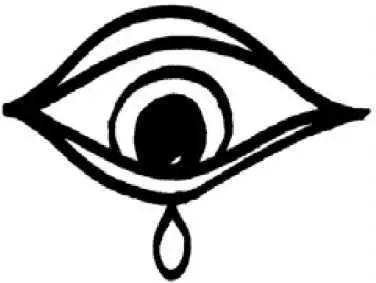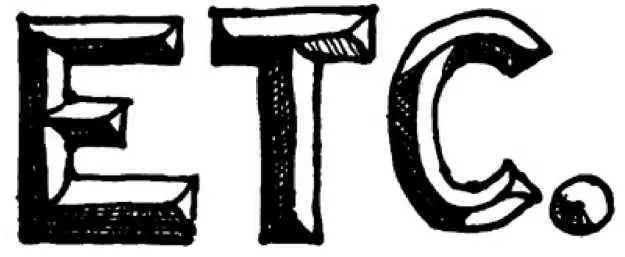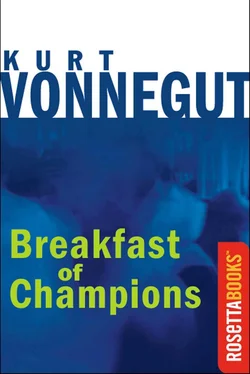“I’ve also arranged for you to have a reputable publisher from now on. No more beaver books for you.”
“Um,” he said.
“If I were in your spot, I would certainly have lots of questions,” I said. “Do you have a gun?” he said.
I laughed there in the dark, tried to turn on the light again, activated the windshield washer again. “I don’t need a gun to control you, Mr. Trout. All I have to do is write down something about you, and that’s it.”
“Are you crazy?" he said.
“No," I said. And I shattered his power to doubt me. I transported him to the Taj Mahal and then to Venice and then to Dar es Salaam and then to the surface of the Sun, where the flames could not consume him—and then back to Midland City again.
The poor old man crashed to his knees. He reminded me of the way my mother and Bunny Hoover’s mother used to act whenever somebody tried to take their photographs.
As he cowered there, I transported him to the Bermuda of his childhood, had him contemplate the infertile egg of a Bermuda Ern. I took him from there to the Indianapolis of my childhood. I put him in a circus crowd there. I had him see a man with locomotor ataxia and a woman with a goiter as big as a zucchini.
I got out of my rented car. I did it noisily, so his ears would tell him a lot about his Creator, even if he was unwilling to use his eyes. I slammed the car door firmly. As I approached him from the driver’s side of the car, I swiveled my feet some, so that my footsteps were not only deliberate but gritty, too.
I stopped with the tips of my shoes on the rim of the narrow field of his downcast eyes. “Mr. Trout, I love you," I said gently. “I have broken your mind to pieces. I want to make it whole. I want you to feel a wholeness and inner harmony such as I have never allowed you to feel before. I want you to raise your eyes, to look at what I have in my hand."
I had nothing in my hand, but such was my power over Trout that he would see in it whatever I wished him to see. I might have shown him a Helen of Troy, for instance, only six inches tall.
“Mr. Trout— Kilgore —" I said, “I hold in my hand a symbol of wholeness and harmony and nourishment. It is Oriental in its simplicity, but we are Americans, Kilgore, and not Chinamen. We Americans require symbols which are richly colored and three-dimensional and juicy. Most of all, we hunger for symbols which have not been poisoned by great sins our nation has committed, such as slavery and genocide and criminal neglect, or by tinhorn commercial greed and cunning.
“Look up, Mr. Trout," I said, and I waited patiently. “Kilgore—?"
The old man looked up, and he had my father’s wasted face when my father was a widower—when my father was an old old man.
He saw that I held an apple in my hand.
“I am approaching my fiftieth birthday, Mr. Trout,” I said. “I am cleansing and renewing myself for the very different sorts of years to come. Under similar spiritual conditions, Count Tolstoi freed his serfs. Thomas Jefferson freed his slaves. I am going to set at liberty all the literary characters who have served me so loyally during my writing career.
“You are the only one I am telling. For the others, tonight will be a night like any other night. Arise, Mr. Trout, you are free, you are free."
He arose shamblingly.
I might have shaken his hand, but his right hand was injured, so our hands remained dangling at our sides.
“Bon voyage," I said. I disappeared.
I somersaulted lazily and pleasantly through the void, which is my hiding place when I dematerialize. Trout’s cries to me faded as the distance between us increased.
His voice was my father’s voice. I heard my father—and I saw my mother in the void. My mother stayed far, far away, because she had left me a legacy of suicide.
A small hand mirror floated by. It was a leak with a mother-of-pearl handle and frame. I captured it easily, held it up to my own right eye, which looked like this:

Here was what Kilgore Trout cried out to me in my father’s voice: “Make me young, make me young, make me young!”













